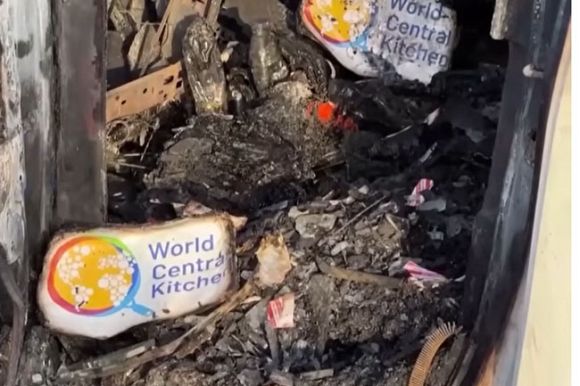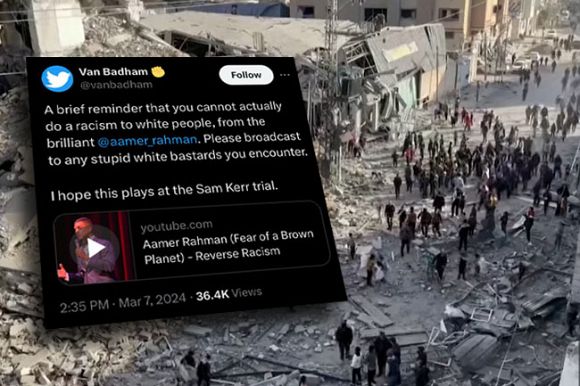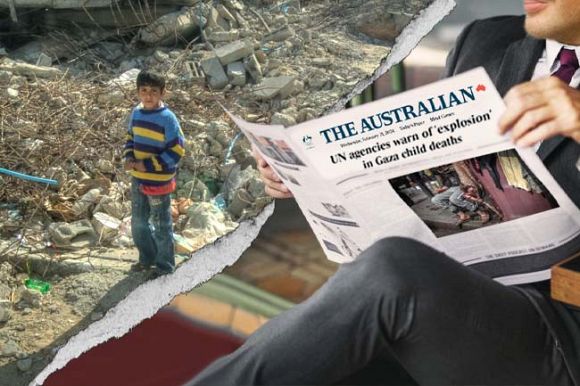After the pogrom of 7 October, the massacre of 1,200 innocents and the capture of over 250 hostages, Israel deployed overwhelming force determined to break the Palestinian organisation Hamas by “eliminating” its underground army.
As Dr Lee Duffield reports in the second of two reports on Gaza, that has had continuing, devastating impacts on the civilian population in the crowded settlements of the enclave.
THE ISRAELI DEFENCE FORCES (IDF) have claimed the elimination of 20 Hamas battalions, looking for four that are left, mostly in the refugee centre of Rafah. In the casualties, they have listed over 600 of their own soldiers dead and 12,000 enemy (that figure contested, Hamas agreeing to some 6,000).
Estimates of Hamas’ army's total strength have been from 20-40,000. Figures from the health service run by the Hamas authority, indicating 33,000 deaths overall, do not differentiate between military and civilians, meaning still that at least 20,000 non-combatant civilians have lost their lives to this date.
Overwhelming — disproportionate and indiscriminate force?
Scores of observers – military, diplomatic, governmental, legal and outsiders on the ground – are calling the IDF strategy ‘disproportionate’ and ‘indiscriminate’, which means in violation of international humanitarian law.
Air attacks on undefended cities wreak devastation, as heralded by the German attacks on Guernica (1937) and Belgrade (1941), and in too many successor events, such as Russian and Syrian bombings of Aleppo (2016).
The horror and outrage of it is being persuasively registered in adroit professional television coverage, probably by Gaza TV, controlled by Hamas and likely Al Jazeera, with the Israeli Government now moving to eject that network from its territory. It may be organised, but the indignation and hurt in the eyes of infants facing the camera, stating the line, “What did we do to deserve this?” is uncontestably tragic and real.
Comments by Hamas representatives outside the territory reflect an attitude that the civilians exposed in the fighting – the aged, children, parents, siblings and spouses of their soldiers – are contributing to a sacrificial “defence” of a community. They describe Israel’s strategy as “ethnic cleansing” of Palestinians and “forcible removal from their land”.
Because of the high birth rate in Gaza, the population profile is young, half under 18, producing inordinate numbers of children among the casualties.
Constant and unpredictable demolitions by air attack have ruined so much of the buildings and infrastructure the question will be raised, especially in Israel, whether Gaza is becoming uninhabitable. Yet Palestinians in Gaza, unable to flee in any event, state that if they leave, they might never get back — another Nakba.
Prospects and consequences
By early April, the main fighting had moved to the south, encroaching on the concentration of refugees around Rafah. Israel had opened crossings to allow in more aid convoys and bombing had become less intensified with more emphasis on clearing underground defences. But working through intermediaries, the two sides remained obdurate on the possibilities of a ceasefire and release of the remaining hostages.
From the Hamas perspective, releasing the hostages would allow the IDF to destroy their remaining forces; there could be no use of diabolical weapons in tunnels – explosives, bulldozers, water, gas or gasoline – with the possibility of captives held underground.
From Israel’s perspective, they are pushing on to complete the destruction of the Hamas military and need at least a signal victory, such as the capture of its leader Yahya Ibrahim Hassan al-Sinwar. To them, without such completion, Hamas would survive — it would win.
Main actors:
The children
In this great tragedy, common humanity demands that the conflict be stopped.
The helplessness of the outside world was represented by Secretary General of the United Nations, António Guterres, outside the gates of Rafah, pleading for peace.
Guterres said:
“Six months on, we are at the brink: of mass starvation, regional conflagration. A total loss of faith in global standards and norms. It’s time to step back from that brink...”
United States President Joe Biden has been under pressure to deploy high-risk measures against America’s long-term ally — high risk for his own political survival and for further Middle East insecurity. This would involve blocking financial credits and breaking contracts to supply weapons and ammunition to Israel. It might be used as leverage for behind-the-scenes efforts by his administration from early April to cause a ceasefire agreement; with the civilian tragedy again the priority.
“Nearly two million more Palestinians under bombardment or displaced, homes destroyed, neighbourhoods in rubble, cities in ruin, families without food, water, medicine. It’s heartbreaking.”
The hostages and their families
Again, in this great tragedy, common humanity demands that the conflict be stopped.
Thousands of protestors in Israel have continued with demands for the hostages to be got out as the head priority. With 130 still believed alive and in captivity, the issue is a main threat to the Government on its home front.
Benjamin Netanyahu
Israeli Prime Minister Benjamin Netanyahu is a cocksure extremist — the security failure on the border was on his watch.
He has dragged millions of Israelis and Palestinians into a war that would become a test of attrition; he is accused of betraying the hostages by doggedly prioritising his war aims; he remains in office on the say-so of a fringe of ultra-conservatives and vicious religious crackpots in his Government, and he is gambling that if he wins the war, he will emerge all the stronger.
That is the unpopular image of Netanyahu in the news out of Israel. His resignation might be a circuit-breaker if it could be forced out of him — but unlikely.
Yahya Ibrahim Hassan al-Sinwar
The leader of Hamas in the Gaza Strip was a product of the tragedy of Palestine and the Nakba. Born in the camps, he joined radical Islamist groups at a young age and became notorious for personally committing torture and murder, by strangulation, of opponents, particularly “collaborators” with Israel. Gaoled by the Israelis for 22 years, he was released with more than 1,000 others in exchange for a captured Israeli soldier in 2011.
Believed by Israel to be hiding in the southern area of Gaza, Yahya Sinwar became the prime target. It might be another kind of circuit-breaker if he were caught and/or killed or surrendered to the Israelis or to the United Nations for sending on to the International Criminal Court — unlikely as well.
Bad times — anxious world
Is Gaza a sign of declining world civilisation, as posited by American journalist David Remnick, an encroachment of oppression and tragedy against decency, democracy and compromise?
Outside parties like the UN, Egypt, Qatar and the USA might get the two sides in this conflict to strike an agreement to end the current violence but then would have to start a necessary but fraught international effort to get a new settlement.
How might Gaza be rebuilt; no reparations to be expected from Israel? How can there be a Palestine? What will become of Israel if made a pariah of nations?
What about the people? Wars produce tortured minds and broken lives; this war has gone on at different levels of intensity for three-quarters of a century.
For Jewish people in Israel, where the Shoa, the Holocaust, is memorialised, suffering in this conflict will be aggravated by generational suffering from that earlier time. It has created an imperative, an obligation to survive, under the watchwords, “never again”.
For the Arab people of Palestine, there is the insecurity of the Nakba, generations driven from the land with no other land to go to, horrendously aggravated by the bombing and destruction now of what little they had. Can children who are so shocked and harmed even begin a life?
In news reporting, journalists grappling with a difficult story will permit themselves a few words at the end to give a response and impression, usually valuable because of the work they have been putting in.
After 26 weeks of the Gaza war, the ABC Middle East correspondent Allyson Horn concluded an extended report with this statement to camera:
“When I first moved here two years ago, people I spoke to still had some vague hope, that peace might one day be possible. Now, I don’t know how Israelis and Palestinians will ever forgive each other.”
Amongst Dr Lee Duffield’s vast journalistic experience, he has served as ABC's European correspondent. He is also an esteemed academic and member of the editorial advisory board of Pacific Journalism Review.
Related Articles
- Gaza: The belligerents push on, the sufferers pay
- Albanese infirm over killing of Gaza aid workers
- Australia needs wartime government to confront global crises
- Australian media's greatest crime against Gaza is ignoring it
- What comes after Rafah
 This work is licensed under a Creative Commons Attribution-NonCommercial-NoDerivs 3.0 Australia License
This work is licensed under a Creative Commons Attribution-NonCommercial-NoDerivs 3.0 Australia License
Support independent journalism Subscribe to IA.















